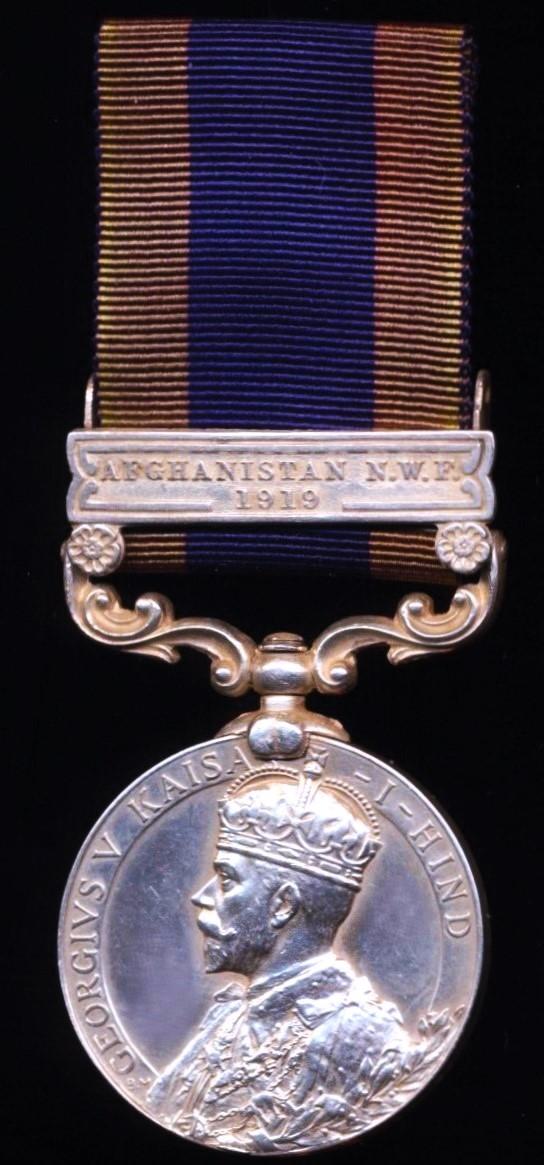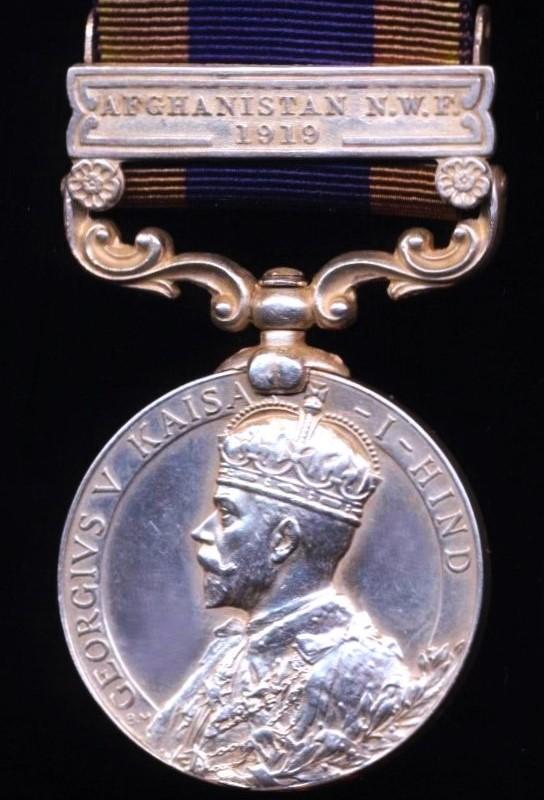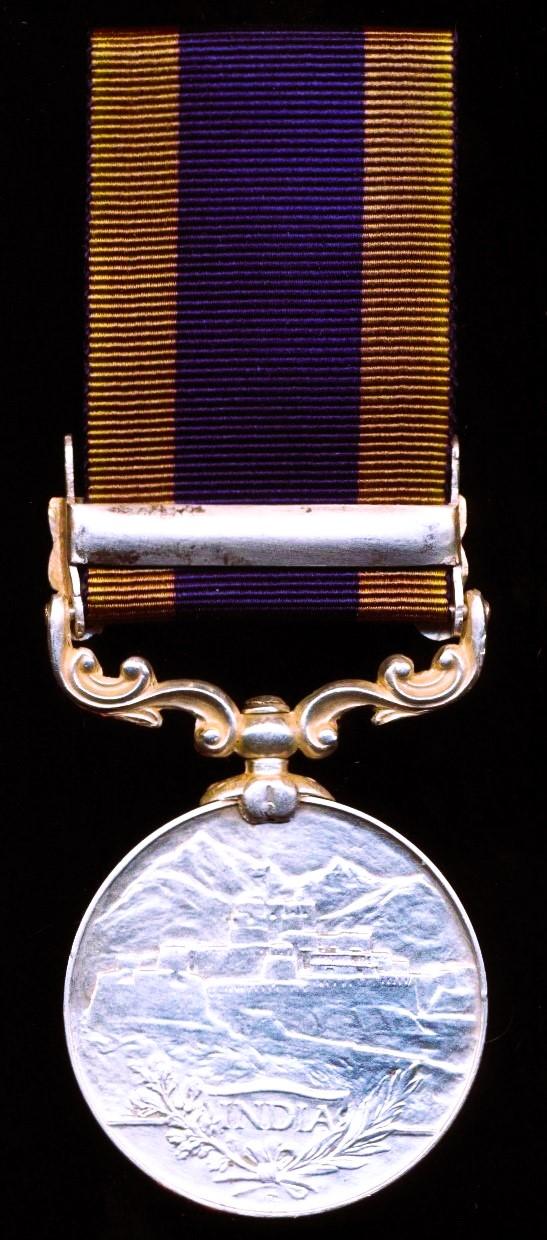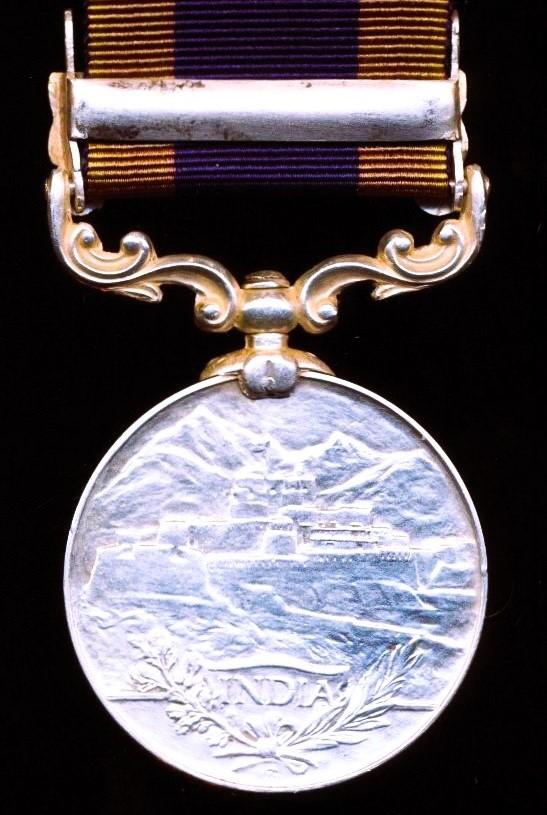Indian General Service Medal 1908-35. GV first issue. Silver with clasp 'Afghanistan N.W.F. 1919' (Peon. Mohamed Usaf, M.W.S.)
The recipient, by faith was a Mussalman, non combatant who held the appointment of 'Peon' (Messenger, Valet or General Worker) while serving with the Military Works Service of the British Indian Army
Peon: Hobson-Jobson gives the following origins and meaning of 'Peon'
Quote,
PEON, s. This is a Portuguese word peão (Span. peon); from pé, 'foot,' and meaning a 'footman' (also a pawn at chess), and is not therefore a corruption, as has been alleged, of Hind. piyāda, meaning the same; though {696b}the words are, of course ultimately akin in root. It was originally used in the sense of 'a foot-soldier'; thence as 'orderly' or messenger. The word Sepoy was used within our recollection, and perhaps is still, in the same sense in the city of Bombay. The transition of meaning comes out plainly in the quotation from Ives. In the sense of 'orderly,' peon is the word usual in S. India, whilst chuprassy (q.v.) is more common in N. India, though peon is also used there. The word is likewise very generally employed for men on police service (see BURKUNDAUZE). Mr. Skeat notes that Piyun is used in the Malay States, and Tambi or Tanby at Singapore. The word had probably become unusual in Portugal by 1600; for Manoel Correa, an early commentator on the Lusiads (d. 1613), thinks it necessary to explain piões by 'gente de pé.'
Unquote.
A scarce seen non-combatant's campaign medal to a 'Peon'
Condition: About GVF
Code: 24262







